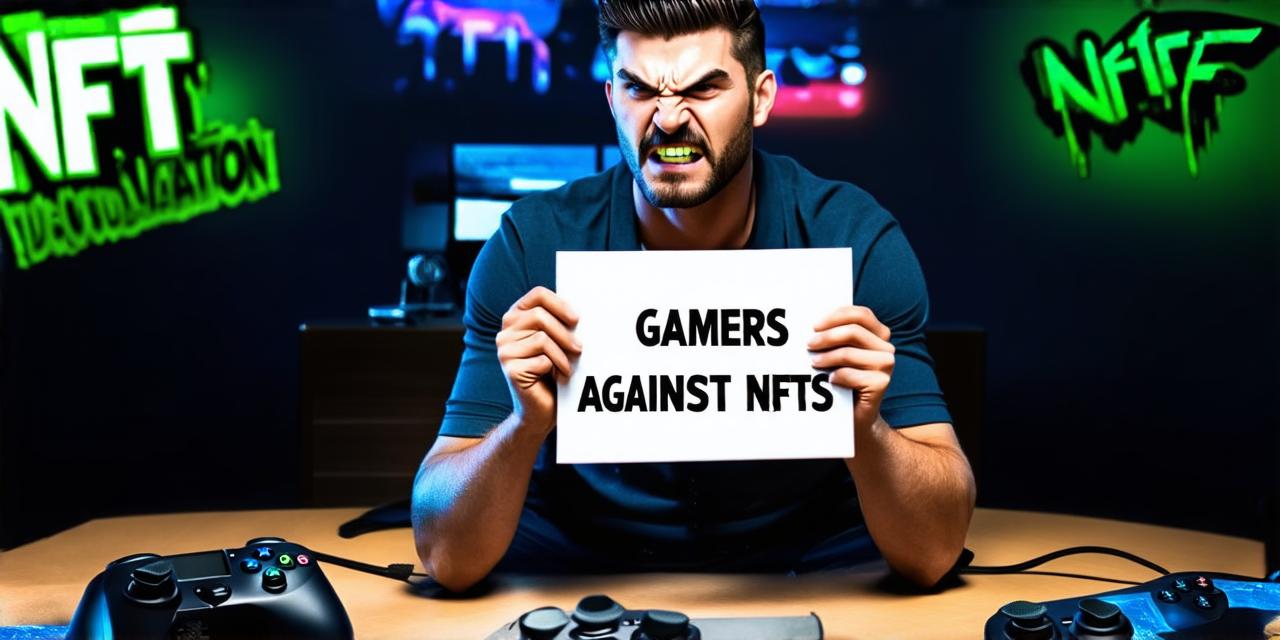The world of blockchain technology has been buzzing with excitement and debate ever since non-fungible tokens (NFTs) first emerged on the scene. NFTs have been hailed as a game-changer in the digital art and collectibles space, allowing creators to monetize their work and fans to own unique, one-of-a-kind assets. However, not everyone is sold on the idea of NFTs, especially within the gaming community.
What Are NFTs and How Do They Work?

Before diving into the reasons why gamers might be opposed to NFTs, it’s important to understand what they are and how they work. NFTs are digital assets that are stored on a blockchain network, making them unique, verifiable, and easily transferable. They can represent anything from art and music to collectibles and in-game items. NFTs are created using smart contracts, which automatically execute the terms of the agreement between the buyer and seller.
Why Are Gamers Against NFTs?
Despite the potential benefits of NFTs for gaming, there are several reasons why gamers might be opposed to them. Here are some of the most common:
- Lack of Value Proposition: One of the main reasons why gamers might be against NFTs is that they don’t see the value proposition. Many gamers feel that NFTs are simply a way for game developers to monetize their content without adding any real value to the player experience. They argue that games should be free to play and that players should not have to pay for in-game items or collectibles.
- Market Manipulation: Another reason why gamers might be opposed to NFTs is that they fear market manipulation. Some gamers feel that NFTs could be used by game developers to create artificial scarcity and drive up the value of certain items or collectibles. They argue that this could lead to unfair practices and exploitation of players who are unable to afford the most valuable items.
- Environmental Impact: The environmental impact of NFTs is also a concern for some gamers. The process of creating and storing NFTs on a blockchain network requires a significant amount of energy, which can contribute to climate change. Gamers who are concerned about the environment might be opposed to NFTs because they fear that their creation and use could have a negative impact on the planet.
- Lack of Accessibility: Finally, some gamers might be opposed to NFTs because they feel that they exclude certain players from participating in the game. NFTs often require a significant financial investment to create and purchase, which could limit their accessibility to players who do not have the means to afford them. Gamers who value inclusivity might be opposed to NFTs because they feel that they perpetuate inequality within the gaming community.
Case Studies and Personal Experiences
To better understand why gamers might be against NFTs, it’s helpful to look at some real-life examples and personal experiences. One such example is the controversy surrounding CryptoKitties, a blockchain-based game that allows players to collect and breed digital cats. In 2017, CryptoKitties became a cultural phenomenon, with some cats selling for millions of dollars. However, the game also faced criticism for its environmental impact and concerns about market manipulation.
Another example is the use of NFTs in the gaming industry.
